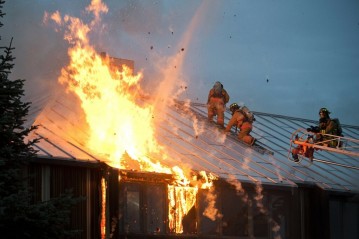
As the popularity of solar energy continues to rise, more and more homeowners are considering solar panel installations to harness the power of the sun and reduce their carbon footprint. However, concerns about the safety of solar panels and the potential risk of fires have also emerged. In this article, we will address these concerns and provide valuable insights to ensure that your solar panel system is safe and secure.
1. The Risk of Solar Panels Causing Fires
Solar panels are designed and manufactured with a focus on safety and durability. While they generally pose a minimal fire risk, it is important to be aware of potential factors that could lead to fire incidents. It is worth noting that the incidence of solar panel fires is extremely rare, accounting for a small fraction of overall fire incidents.
2. What Can Make Solar Panels Catch Fire?
a) Electrical Issues: Faulty electrical components, such as damaged wiring or improperly installed connectors, can lead to overheating and potential fire hazards. It is crucial to hire experienced and qualified solar PV installers to ensure proper installation and wiring.
b) Poor Quality Materials: Inferior quality solar panels and components may be more prone to failure, increasing the risk of fires. Opting for high-quality solar panels and reputable brands can significantly reduce this risk.
c) Environmental Factors: Although solar panels are built to withstand harsh weather conditions, extreme temperatures, lightning strikes, or wildfires can potentially cause damage and increase the risk of fire. Proper maintenance and regular inspections are essential to identify any potential issues.
3. How to Prevent or Reduce Solar Panel Fire Risk
a) Choosing Experienced Solar PV Installers
One of the most critical steps in ensuring the safety of your solar panel system is selecting experienced and certified solar PV installers. These professionals have the expertise to design and install your system according to industry standards, minimizing the risk of electrical faults and fire incidents.
b) Get Quality Solar Panels and Parts
Investing in high-quality solar panels and components is crucial for system longevity and safety. Reputable manufacturers adhere to rigorous testing and quality control standards, reducing the likelihood of equipment failure and potential fire hazards.
c) Regular System Maintenance
Routine maintenance plays a vital role in preventing fire incidents. Schedule regular inspections by a qualified technician to identify and address any signs of wear and tear, loose connections, or damaged components. Additionally, keep the area around the solar panels free from debris, ensuring proper airflow and reducing the risk of overheating.
d) Avoid DIY Solar Installation
While DIY projects can be rewarding, solar panel installation is not an area to take lightly. Improper installation can lead to safety hazards, including fire risks. It is advisable to hire professionals who are well-versed in solar panel installation to guarantee compliance with safety standards and minimize the potential for accidents.
4. Solar Panels' Impact on Firefighters
It is essential to consider the safety of firefighters when designing your solar panel system. In the event of a fire, firefighters may encounter additional challenges due to the presence of solar panels. Solar panels can create an electrical hazard, making it more difficult to control fires and perform rescue operations. To address this concern, it is recommended to install rapid shutdown devices that can quickly isolate the solar panel system during emergencies, ensuring the safety of both the firefighters and the property.
5. Frequently Asked Questions
Q: Are solar panels more prone to fires than traditional electricity systems?
A: No, solar panels are generally safe and have a low risk of causing fires. Proper installation, high-quality components, and regular maintenance are key to ensuring their safe operation.
Q: Can extreme weather conditions damage solar panels and cause fires?
A: While solar panels are designed to withstand extreme weather conditions, such as hailstorms or high winds, severe events like lightning strikes or wildfires can potentially cause damage. Regular inspections and prompt repairs can help minimize any risks associated with these incidents.
Q: Is it necessary to have insurance coverage for solar panels?
A: It is advisable to review your homeowner's insurance policy to ensure that it covers solar panel systems. Some insurance providers may require additional coverage specifically for solar panels, considering factors such as system value and potential fire risks.
Conclusion
Solar panels are a reliable and environmentally friendly source of energy. While the risk of fire incidents is minimal, it is crucial to prioritize safety by working with experienced installers, investing in quality components, and scheduling regular maintenance. By taking these precautions and following industry best practices, you can enjoy the benefits of solar energy without compromising safety. Embrace the clean energy revolution confidently and power your home responsibly with solar panels.
Ecgsolax has more than a decade of experience in the solar industry, and we’re dedicated to providing you with everything you need for your solar system, including deep cycle batteries, all in one inverters, solar charge controllers, etc.
If you have any questions about solar, visit our Ecgsolax customer service for more information. Ecgsolax is always ready to answer questions or provide guidance.

0 comments